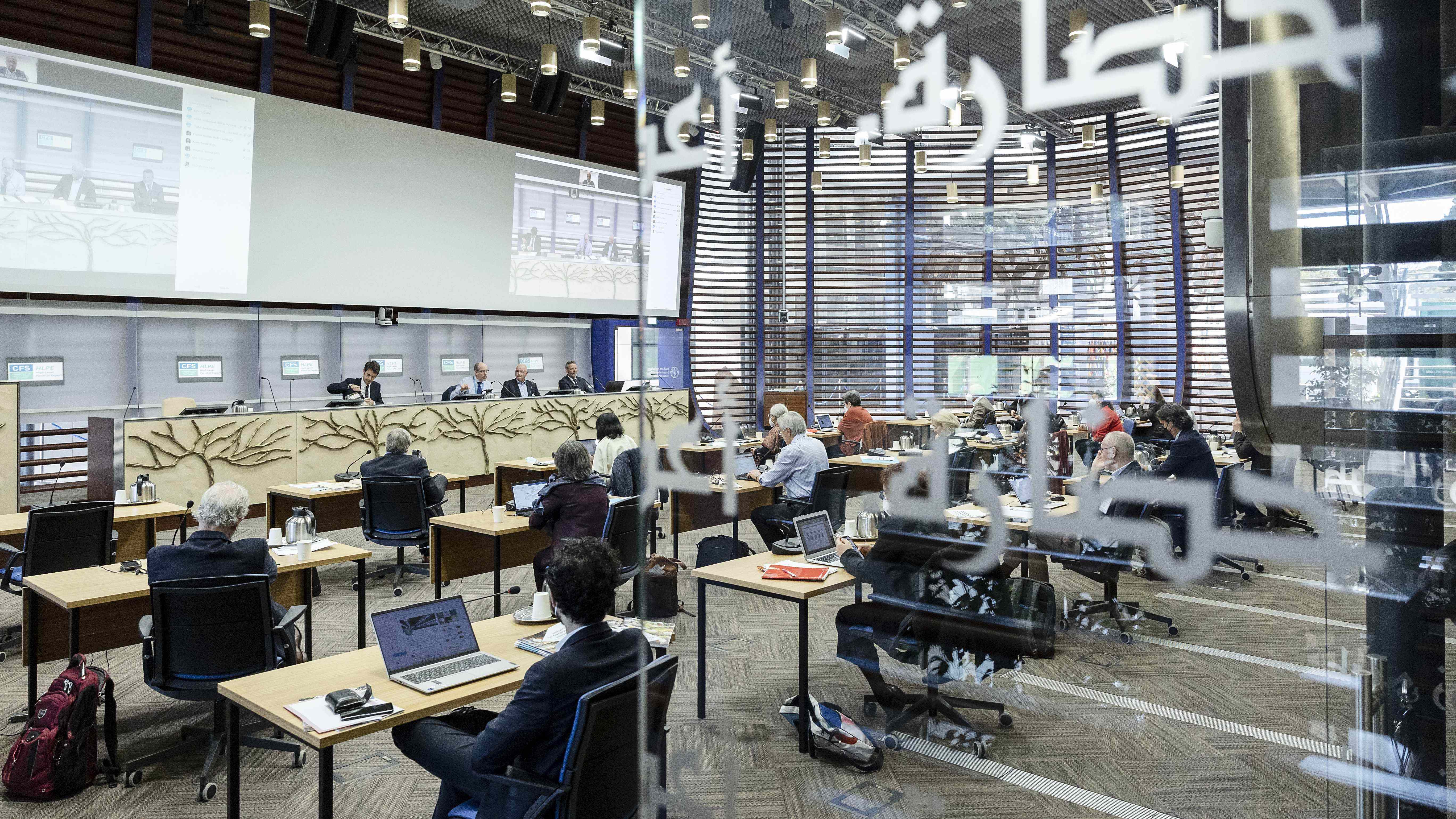
HLPE-FSN Steering Committee members discussing how to foster global scientific collaboration across different science-policy-society interfaces.
©FAO/Giuseppe Carotenuto
The HLPE-FSN's experts Bernard Lehmann, William Moseley, Ruben G. Echeverría, and Patrick Webb were actively engaged on behalf of the entire Steering Committee in the Montpellier event organized by the University of Montpellier and the CGIAR last week, in Montpellier, France, to foster global scientific collaboration across different science-policy interfaces (SPIs) to increase impact on decision-makers in the fields of policymaking, private sector and civil society for a more sustainable and resilient world.
Entitled “Pooling Collective Intelligence”, this workshop brought together representatives of global organizations and international expert groups to create a space for reflection to collectively respond to major societal challenges around the Nourish-Nurture-Protect pillars. “One of the primary challenges is the fragmentation of expertise, institutions, and sectors”, Bernard Lehmann, Chairperson of the HLPE-FSN explained. The aim is for these players to succeed in March 2024 in drawing up a common roadmap and structuring a community of practice and learning on the science-policy interfaces.
“This collaboration is the cornerstone of effectively addressing global challenges”, Lehmann added. The HLPE-FSN remains committed to forging stronger partnerships to make a meaningful impact on crucial issues such as food security, nutrition, climate change, health and biodiversity conservation.
During the event, the HLPE-FSN actively contributed with practical proposals and ideas aimed at bolstering cooperation among diverse science-policy-society interfaces. Some of these innovative suggestions include:
The proposals put forth by the HLPE-FSN are meant to be not only impactful but also readily feasible in the short to medium term, cost-effective, and aligned with the legal mandates and specific functions of the various science-policy-society interfaces and expert panels involved.
The HLPE-FSN believes in practical solutions that can drive meaningful change while respecting the unique roles and responsibilities of each entity.
Bernard Lehmann, William Moseley, Ruben G. Echeverría, and Patrick Webb in the recent Montpellier event organized by the University of Montpellier and the CGIAR. © CFS HLPE-FSN/Évariste Nicolétis